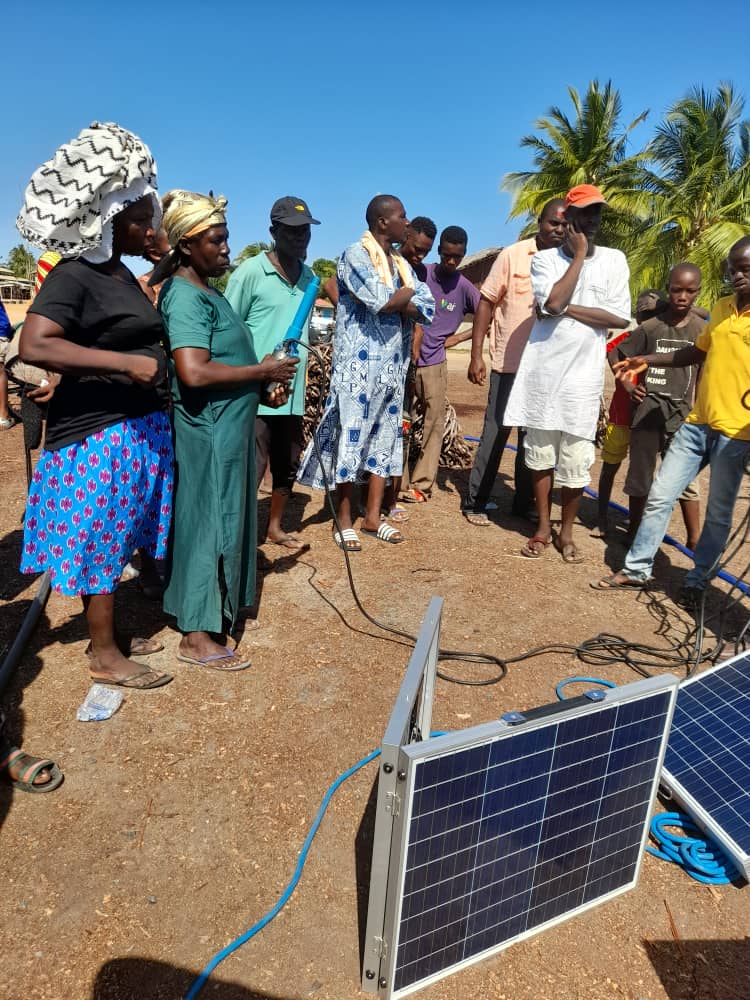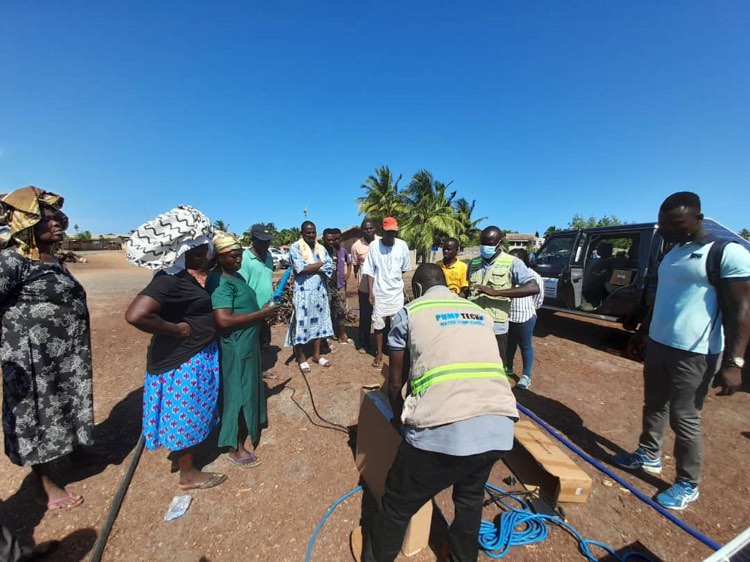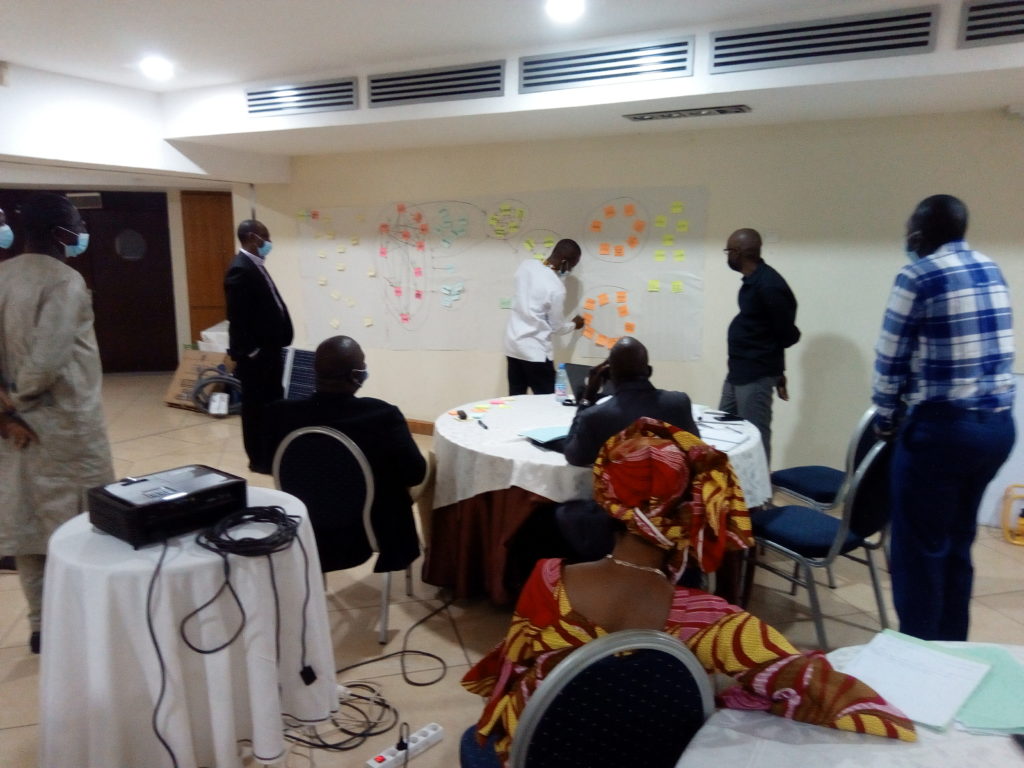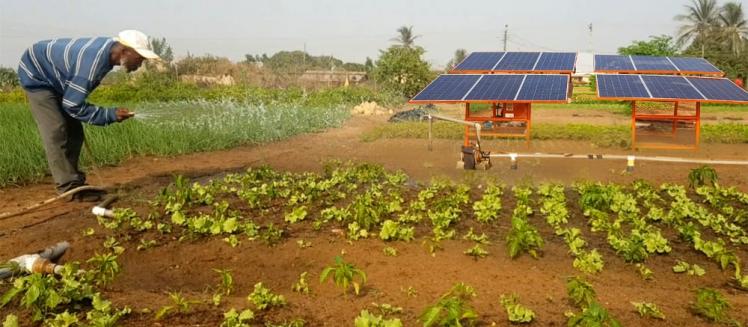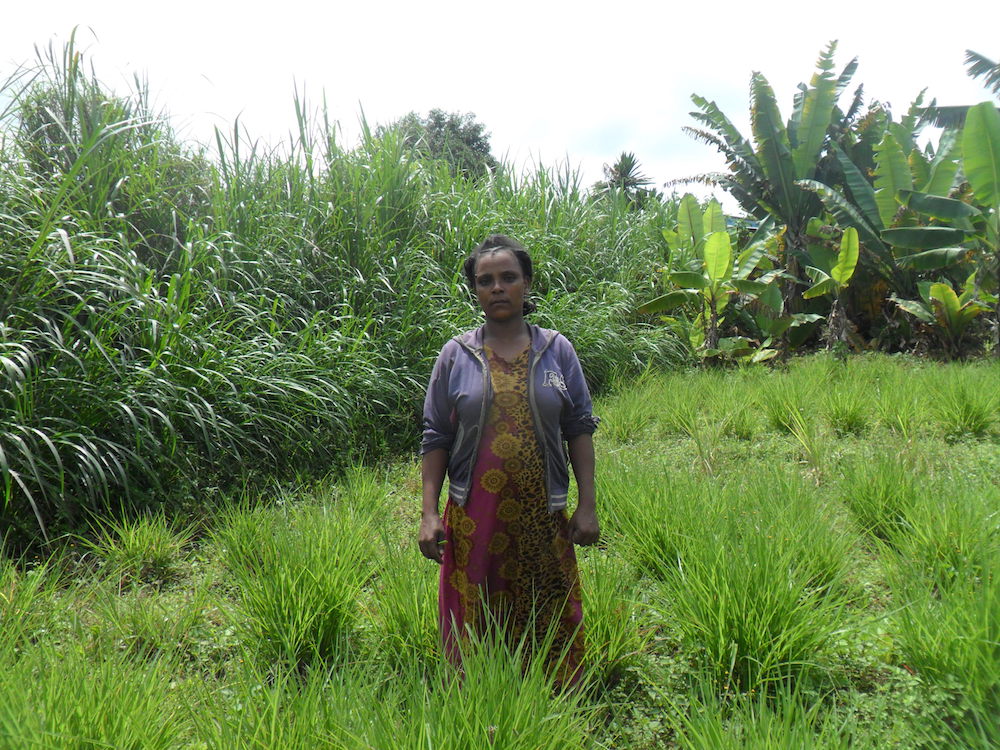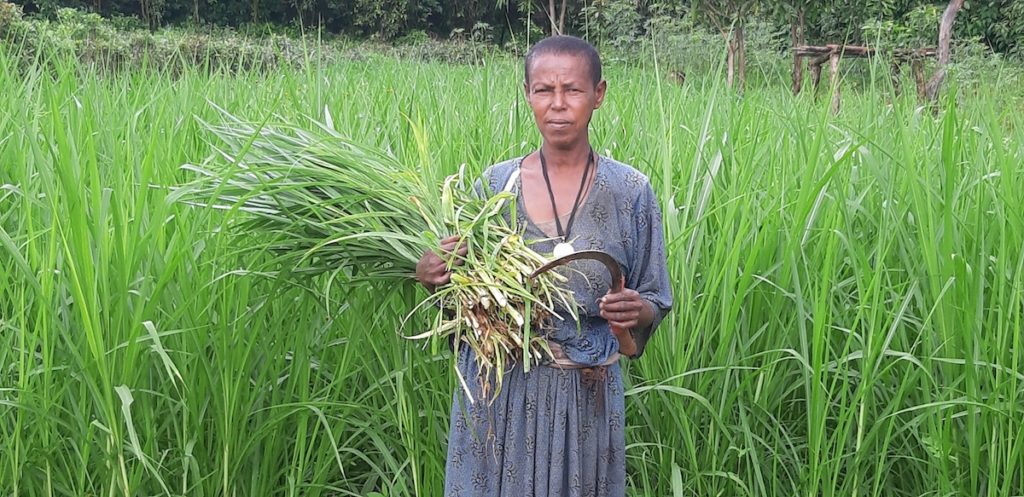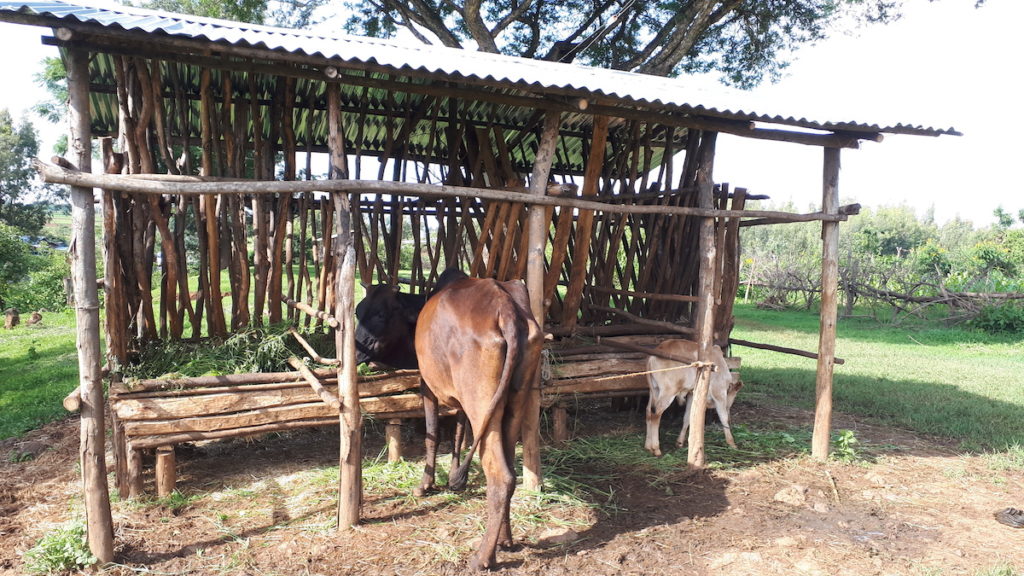byThai Thi Minh, Senior Researcher, and Abena Ofosu, Senior Research Officer, Innovation Scaling, IWMI
In the Upper East region of Ghana, most smallholder farmers still rely on watering cans and buckets for irrigating the tomato, pepper, onion, and other vegetable crops they grow during the dry season. This type of irrigation is both labor intensive and time consuming, while more advanced irrigation technologies, such as motorized pumps, could boost farmers’ incomes, improve their health and resilience, and increase the supply of nutritious foods.
In the past, farmers in this area have used both electric irrigation pumps, running off the electric grid when available, and petrol- and diesel-powered motorized pumps, but both options are costly. Now, solar-powered irrigation pumps are emerging as an attractive, affordable alternative, but these kinds of pumps are not yet readily available in the Upper East region.
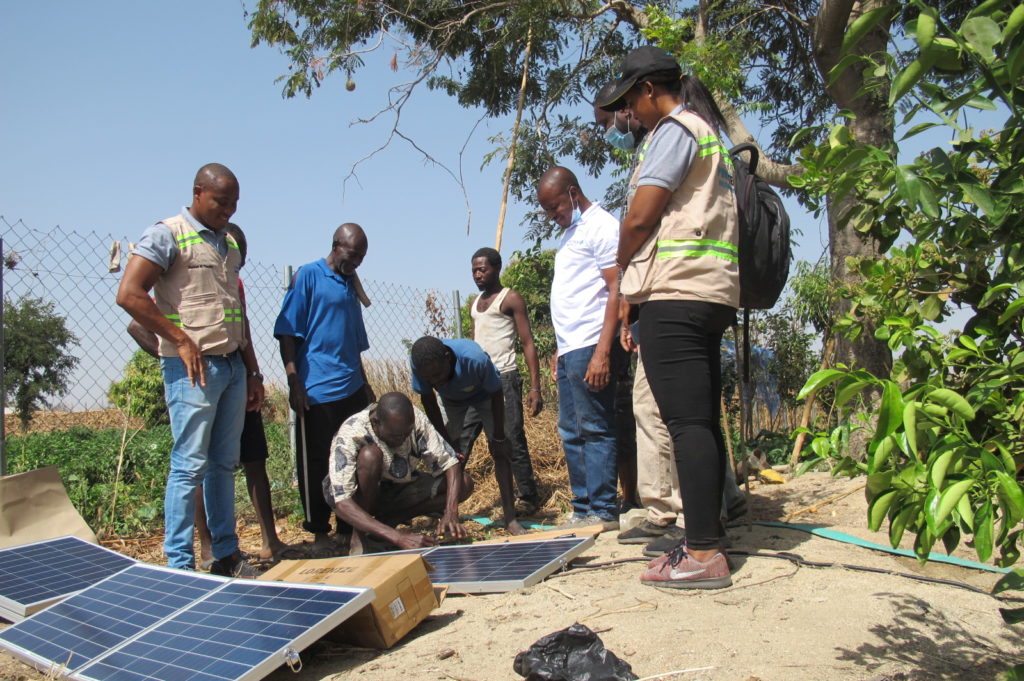
That’s why the International Water Management Institute (IWMI), through the USAID-supported Africa Research in Sustainable Intensification for the Next Generation (Africa RISING) and the Feed the Future Innovation Lab for Small Scale Irrigation (ILSSI), has been supporting irrigation equipment suppliers in Ghana to expand into this new market, including by breaking the market down into distinct segments of farmers that could access and benefit from solar-powered irrigation pumps in different ways.
Market segmentation for solar-powered irrigation pumps
Ghana’s Upper East region offers an attractive market for companies selling solar-powered irrigation pumps, with opportunities for them to establish sales outlets, expand customer bases, and reach and improve profitability by making their products accessible at the doorsteps of farmers.
These opportunities were discussed at the recently held third meeting of a multi-stakeholder dialogue platform in Ghana, established by IWMI and ILSSI to bring together stakeholders from government, research organizations, irrigation equipment suppliers, financial services, and value chain actors to innovate and facilitate the expansion of small scale irrigation.
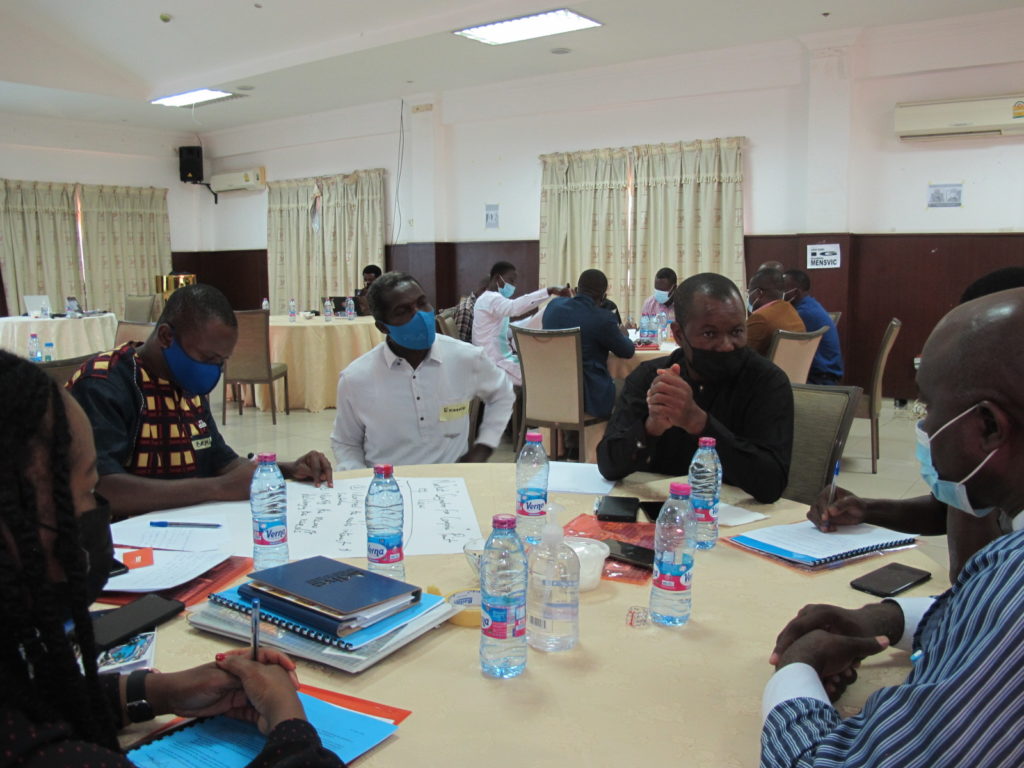
Precise market segmentation is key for companies expanding into new markets. It allows them to plan for and use diverse business models to reach different and diverse groups of farmers. However, few solar pump companies have assessed and targeted market segments as they have established operations in Ghana.
IWMI scientists therefore undertook a market segmentation exercise within the Upper East region, basing it on farmers’ access to land, water, irrigation and production arrangements, financial capital and potential, and product preferences. As a result, four market segments were identified, namely resource-rich individual farmers, resource-limited individual farmers, farmer groups, and mobile farmers who during the dry season move from their residential area to irrigate fields close to publicly funded irrigation schemes.
Understanding these segments is useful for companies because each group of potential customers has distinct options and needs, particularly regarding what type of pump is suitable for them, whether they have capital for the investment on hand, and whether their preference is to make a one-time payment or to access some type of financing.
Creating opportunities for companies and farmers
During the meeting, held on held on May 4, 2021, Osman Sahanoom Kulendi, managing director of Pumptech, a distributor of solar-powered irrigation pumps, shared insights into how they have segmented the market for their range of LORENTZ PS2 solar irrigation pumps, which they offer bundled with what they call PAY-OWN financing, a type of asset-based financing that can give farmers access to solar pumps without the usual collateral or credit history required for a loan.
Pumptech’s findings build on IWMI’s initial assessment of the market segments in the region, and have been validated and refined through several events, organizing by IWMI, that brought together agricultural extension agents, farmers, community volunteers, traders, borehole dealers and pump repairers, researchers, and others from within the region.
Kulendi stressed an urgent need to explore the region’s market potential. He mentioned that establishing a sales and distribution network is one way to make solar-powered pumps accessible to farmers:
“We have been trying to set up an office here in the Upper East since last year. We have not done it yet because we had not explored the potential, especially in irrigation. But with the potential that we have explored since we visited places in the region [with IWMI], I bet you by the end of the year, we will have a physical presence here. IWMI has created this opportunity to bring us together to interact with you. We would also like to encourage you to bring more of us together again to realize our potential,” he said.
While smallholder farmers in the Upper East region are potential customers for solar-powered pumps, their interest will depend on the ease of access, user-friendliness of pumps, whether the pumps meet their needs and preferences, and whether they are economically attractive investments. The multi-stakeholder dialogues meetings, which are expected to continue over the coming years, are valuable for private sector companies to interact with each other and others in the sector, to facilitate linkages between actors, strengthen information exchange, and stimulate innovation.
Market segmentation benefits go beyond business
For private sector businesses, market segmentation helps identifying needs and interests of various groups, such as the segments identified above as well as for example women, youth, and persons with disabilities. With better market segmentation, companies can save time, while reducing cost and effort, when attempting to reach new customers in target markets. In this way, market segmentation indirectly contributes to economic growth in the agricultural sector due to the increase in use of mechanized irrigation technologies.
What’s more, market segmentation can help governments, practitioners, and irrigation equipment suppliers design products specifically targeting women. Such gender-sensitive product design might consider the various water-related roles and schedules of women farmers and could imply designing pumps that are portable, light, and easy to use for multiple purposes. Women farmers prefer solar technology that can be used not only for pumping water for irrigation, but also for livestock watering, and domestic and household hygiene activities. A well-segmented market also makes clear the need to design products that are within the income levels of the target groups, such as women.
In this way, segmenting markets to target women specifically could benefit women in various ways. It might, for example, allow women to access solar-powered irrigation pumps that could improve on-farm production and income, contribute to nutrition security within the household, and reduce the time women spend on irrigation.
Finally, market segmentation could help government and non-governmental organizations plan interventions, allocate resources, facilitate impact assessments, promote inclusive development, and obtain insights that can lead to best-fit innovations and better services for all Ghanaians.
##
The multi-stakeholder dialogue meeting in Ghana was third in a series of events convening stakeholders from the small scale irrigation sector to discuss challenges and collaborate on collective solutions. It was followed by a similar meeting in Ethiopia, which was held on May 27, 2021, and co-convened by the Ethiopian Ministry of Agriculture, the International Water Management Institute (IWMI), and 2030 Water Resources Group. Reports on both events will be published soon.
- For a related story, see the recently published blog post: Building a Better Solar Irrigation Market in Ghana | Agrilinks

